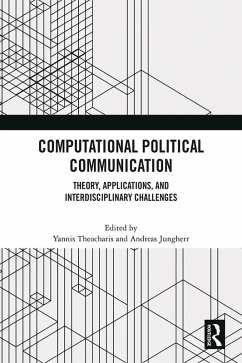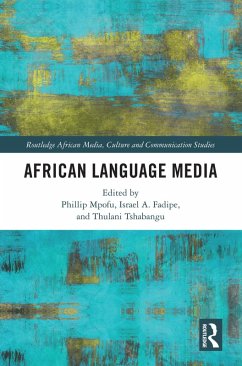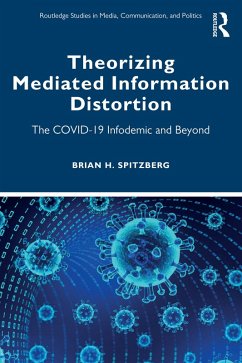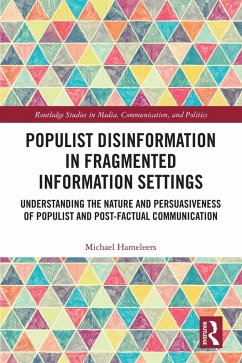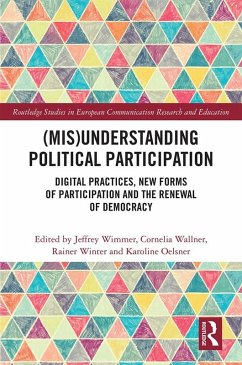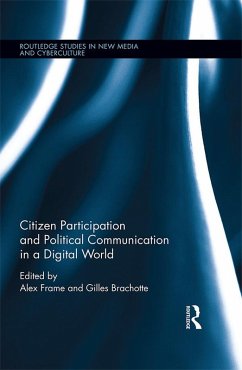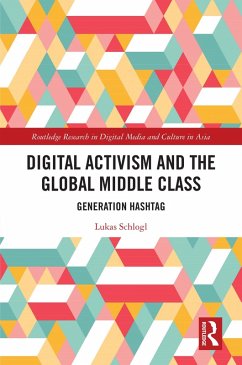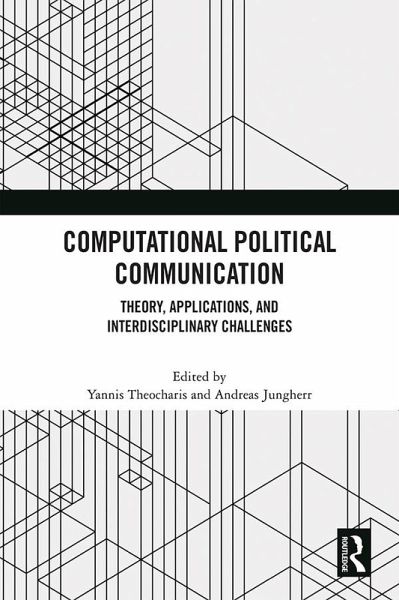
Computational Political Communication (eBook, ePUB)
Theory, Applications, and Interdisciplinary Challenges
Redaktion: Theocharis, Yannis; Jungherr, Andreas
Versandkostenfrei!
Sofort per Download lieferbar
52,95 €
inkl. MwSt.
Weitere Ausgaben:

PAYBACK Punkte
26 °P sammeln!
The challenge of disentangling political communication processes and their effects has grown with the complexity of the new political information environment. But so have scientists' toolsets and capacities to better study and understand them. This edited volume focuses on the use of Computational Communication Science (CCS) to address key questions in political communication, highlighting methodological innovations and the theoretical, practical, and institutional challenges in the field. Topics include clickbaiting, propaganda, political polarization, and media framing.The book starts by map...
The challenge of disentangling political communication processes and their effects has grown with the complexity of the new political information environment. But so have scientists' toolsets and capacities to better study and understand them. This edited volume focuses on the use of Computational Communication Science (CCS) to address key questions in political communication, highlighting methodological innovations and the theoretical, practical, and institutional challenges in the field. Topics include clickbaiting, propaganda, political polarization, and media framing.
The book starts by mapping the challenges and opportunities of data collection and analysis, focusing on computational methods to address theory-driven questions in political communication. Chapters highlight the theoretical, empirical, and institutional aspects of Computational Communication Science (CCS) relevant to the field, assessing the challenges of data requirements, digital signal semantics, and the crucial role of infrastructures, academic institutions, ethics, and training in computational methods. Considering all of these aspects, individual chapters showcase methodological innovations, applying CCS to topics like clickbaiting in the context of propaganda in authoritarian regimes, the visual content produced by political elites, political and affective polarization, and the media coverage of public policy as well as framing in the news media. The volume also offers scholarly contributions on the theoretical, practical, and institutional significance of CCS and the challenges in realizing its potential in political communication.
A significant contribution to the field of political communication, this volume will be a key resource for scholars and researchers of communication studies, politics, media studies and sociology. It was originally published in Political Communication.
The book starts by mapping the challenges and opportunities of data collection and analysis, focusing on computational methods to address theory-driven questions in political communication. Chapters highlight the theoretical, empirical, and institutional aspects of Computational Communication Science (CCS) relevant to the field, assessing the challenges of data requirements, digital signal semantics, and the crucial role of infrastructures, academic institutions, ethics, and training in computational methods. Considering all of these aspects, individual chapters showcase methodological innovations, applying CCS to topics like clickbaiting in the context of propaganda in authoritarian regimes, the visual content produced by political elites, political and affective polarization, and the media coverage of public policy as well as framing in the news media. The volume also offers scholarly contributions on the theoretical, practical, and institutional significance of CCS and the challenges in realizing its potential in political communication.
A significant contribution to the field of political communication, this volume will be a key resource for scholars and researchers of communication studies, politics, media studies and sociology. It was originally published in Political Communication.
Dieser Download kann aus rechtlichen Gründen nur mit Rechnungsadresse in A, B, BG, CY, CZ, D, DK, EW, E, FIN, F, GR, HR, H, IRL, I, LT, L, LR, M, NL, PL, P, R, S, SLO, SK ausgeliefert werden.




